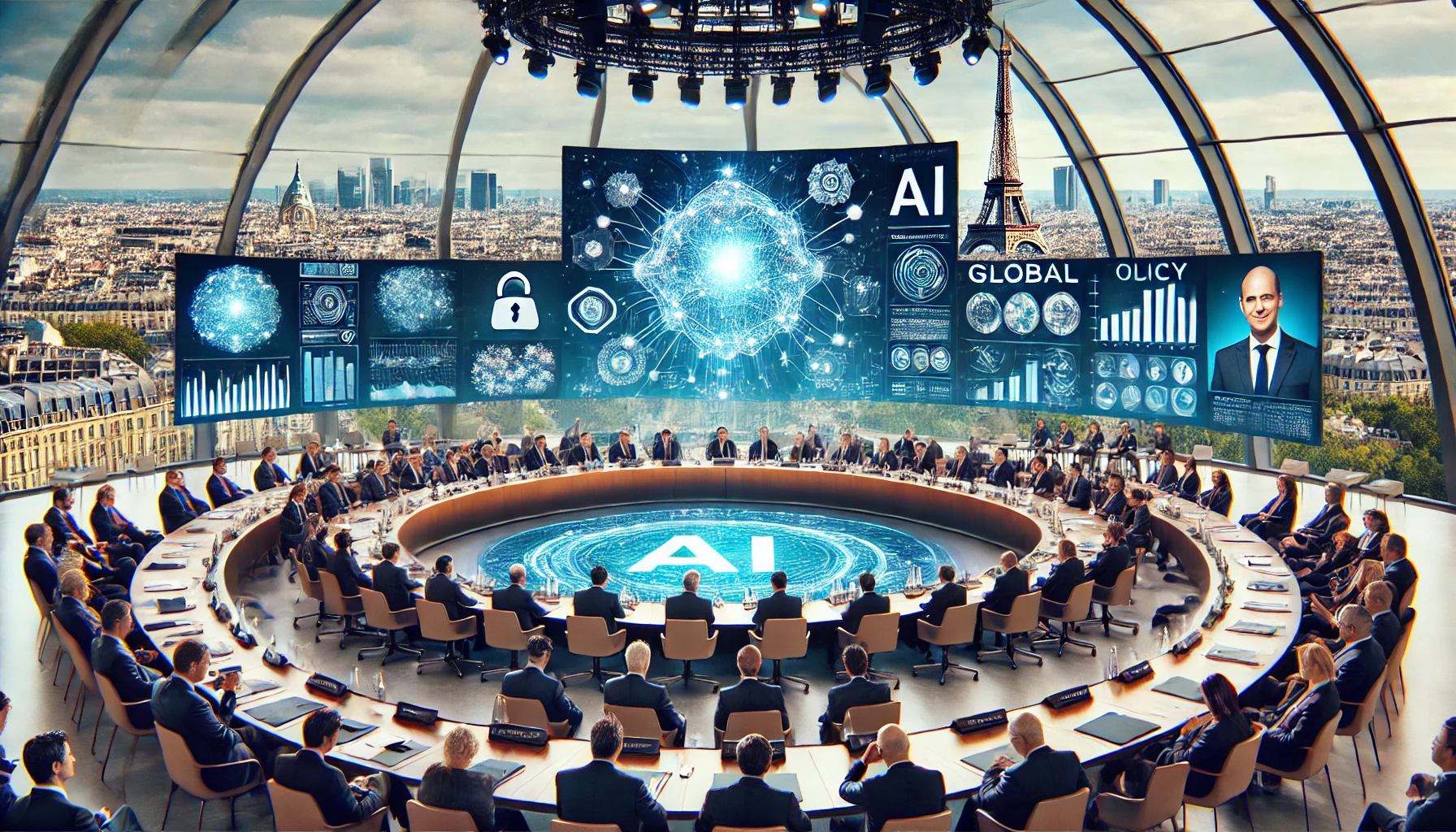World leaders gathered in Paris for the second day of the Artificial Intelligence (AI) Action Summit, where the focus turned to balancing national interests with global cooperation. Representatives from nearly 100 countries, including the US, China, and India, aimed to find common ground on sustainable AI development. However, questions lingered over whether the US would endorse a draft statement promoting an inclusive, human rights-based approach to AI.
French President Emmanuel Macron emphasised Europe’s commitment to clean energy as a cornerstone for AI growth, contrasting it with the US’s fossil fuel-driven strategy. ‘We won’t adopt a ‘drill, baby, drill’ policy,’ Macron said, ‘but instead ‘plug, baby, plug’ into our clean energy resources.’ This stance reflects Europe’s ambition to lead in sustainable AI innovation while addressing the technology’s massive energy demands.
Despite differing energy policies, there was consensus on one point: 2025 is not the year for new AI regulations. US President Donald Trump’s dismantling of his predecessor’s AI safeguards has influenced global perspectives, with Europe opting to streamline its regulations rather than impose new ones. European Commission President Ursula von der Leyen is set to unveil a new AI strategy to simplify rules, deepen the single market, and boost computing investments.
German Chancellor Olaf Scholz urged the EU companies to unite in a collective push for ‘AI made in Europe,’ signalling a desire for regional self-reliance in the face of global competition. Meanwhile, tech executives, including OpenAI CEO Sam Altman, joined the summit’s Business Day, highlighting the private sector’s role in shaping AI’s future. A consortium led by Elon Musk reportedly offered $97.4 billion to acquire the nonprofit overseeing OpenAI, though details remain unconfirmed.
US Vice President JD Vance added another layer of intrigue as the summit progressed. While his primary focus was expected to be AI, reports suggested he might also address the Russia-Ukraine conflict, and this shift in agenda underscores the complex interplay between technology and geopolitics at the summit.
The draft declaration, which calls for avoiding market monopolies and ensuring AI benefits people and the planet, remains a point of contention. While many nations support its principles, the US delegation has not confirmed its stance, casting doubt on the universal adoption of the declaration. Consequently, without unanimous backing, the summit risks failing to establish a unified, sustainable framework for AI’s global development.
Source: https://dig.watch/


